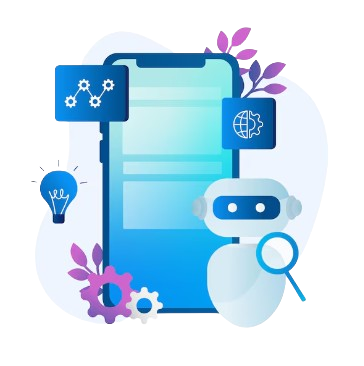AI integration in mobile apps is revolutionizing the way users interact with technology, providing personalized, secure, and efficient experiences. As AI continues to evolve, its integration in mobile apps will become even more sophisticated, further enhancing user engagement and satisfaction.
In today’s digital era, mobile apps are ubiquitous, providing users with services ranging from shopping and banking to entertainment and social networking. As the demand for more intuitive and personalized experiences grows, AI integration in mobile apps has become a critical factor in enhancing user experience. This blog post delves into the transformative power of AI in mobile apps and how it is revolutionizing the way users interact with technology.
The Rise of AI in Mobile Apps
Artificial Intelligence (AI) has made significant strides in recent years, enabling mobile apps to become smarter and more responsive. By integrating AI, developers can create applications that not only understand user behavior but also predict their needs and preferences. This level of sophistication is reshaping the mobile app landscape, providing users with experiences that feel almost magical.

Key Benefits of AI Integration in Mobile Apps
1. Personalized User Experience
One of the most significant advantages of AI integration in mobile apps is the ability to deliver personalized experiences. AI algorithms analyze user data, such as browsing history, preferences, and behavior, to tailor content and recommendations. Whether it’s a music streaming app suggesting your next favorite song or a shopping app curating a personalized collection, AI enhances user engagement by making the experience more relevant.
2. Enhanced Security
Artificial intelligence integration in mobile apps also plays a crucial role in enhancing security. With advanced machine learning algorithms, AI can detect unusual patterns and potential threats in real-time. For instance, AI-powered fraud detection systems in banking apps can identify and prevent suspicious activities, ensuring the safety of users’ financial data.
3. Improved Customer Support
Chatbots and virtual assistants are prime examples of Artificial intelligence integration in mobile apps that improve customer support. These AI-driven tools can handle a wide range of queries, providing instant responses and assistance. By offering 24/7 support, AI chatbots enhance user satisfaction and reduce the workload on human customer service agents.
4. Intelligent Automation
Artificial intelligence integration in mobile apps enables intelligent automation, streamlining various tasks and processes. From automating routine tasks like scheduling appointments to more complex functions like data analysis, AI helps users save time and effort. This automation also leads to increased productivity and efficiency.
5. Advanced Data Analytics
AI integration in mobile apps empowers developers with advanced data analytics capabilities. By analyzing vast amounts of user data, AI can uncover valuable insights and trends. These insights help businesses make data-driven decisions, optimize their apps, and create more targeted marketing strategies.
Real-World Applications of AI Integration in Mobile Apps
The impact of AI integration in mobile apps is evident across various industries. Here are a few real-world applications:
- Healthcare: AI-powered mobile apps provide personalized health recommendations, track vital signs, and even offer virtual consultations with doctors.
- E-Commerce: AI enhances the shopping experience by offering personalized product recommendations, visual search capabilities, and chatbots for customer support.
- Entertainment: Streaming apps use AI to recommend content based on users’ viewing history, creating a more engaging and personalized experience.
- Travel: AI integration in travel apps helps users with personalized itinerary planning, real-time flight updates, and AI-driven customer support.
Conclusion
AI integration in mobile apps is revolutionizing the way users interact with technology, providing personalized, secure, and efficient experiences. As AI continues to evolve, its integration in mobile apps will become even more sophisticated, further enhancing user engagement and satisfaction.
At Tanbits, which offers mobile app development services, we recognize the transformative power of AI and are dedicated to leveraging it to create innovative and user-friendly mobile applications. By embracing AI integration, businesses can stay ahead of the curve and deliver exceptional experiences to their users.
Incorporating AI into your mobile app strategy is no longer a luxury but a necessity. The future of mobile apps lies in their ability to understand, predict, and cater to the unique needs of each user, and AI is the key to unlocking this potential.
BACK










